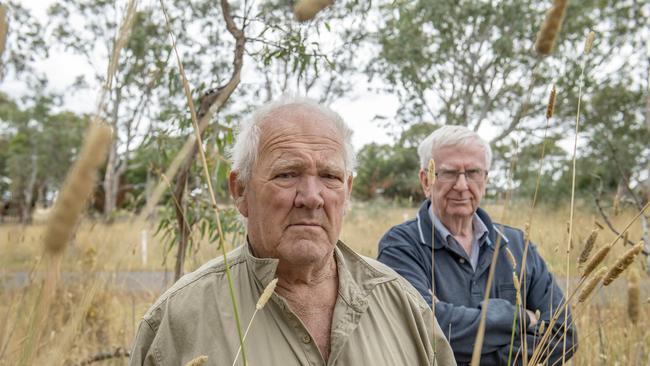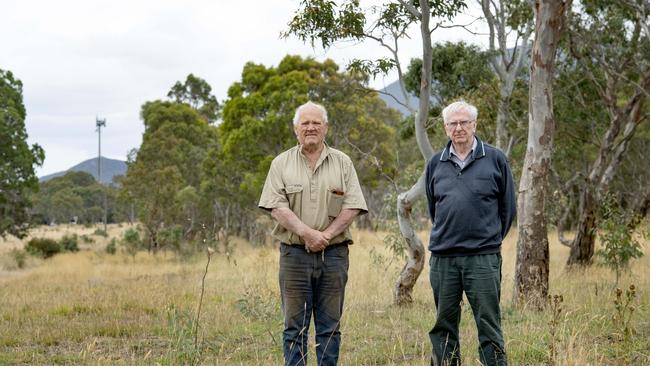CFA blocks roadside fuel reduction burns, Dunkeld volunteer Peter Flinn warns
CFA bureaucrats have taken months to give volunteer firefighters approval for fuel reduction burns despite road authorities granting permits six months ago.

CFA administrative bungling and “petty bureaucracy” are extinguishing the century-old practice of farmers and volunteer firefighters undertaking roadside fuel-reduction burns.
Volunteers say CFA headquarters took until last week to give them the go ahead to conduct roadside burns along the Glenelg Highway, despite VicRoads issuing burn permits in August last year.
Southwest volunteer firefighters say Southern Grampians Shire Council also issued permits for fuel reduction burns long local roads in October last year, but again it took CFA HQ until last week to issue nine-page burn plans to local brigades.
“Clearly, these permits were sent to the CFA – not to the Brigade - (who) sat on them until now,” Dunkeld CFA volunteer Peter Flinn said. “This is scandalous.”
He said brigades also have to gain the permission of the CFA’s rostered duty officer, who may be anywhere in the state, before igniting a burn.
“The whole thing is ridiculous,” Mr Flinn said. “It takes away the control and initiative from brigade that are doing it.”
“Is it any wonder that captains and brigade members are sick and tired of it all and are increasingly disillusioned – to the extent of jacking up on the whole job? This is petty bureaucracy at its worst.”
He said losing control means that this year “very very little has been done” in the CFA District 5, which traditionally conducts half the state’s roadside burns.
A CFA spokeswoman said “planned burns were carefully developed and consider the safety of volunteers, the availability of appropriate resources to support the burns and the environmental conditions.
“History has shown many examples of when inadequate planning for burns has resulted in adverse outcomes, which is why CFA makes no apology for prioritising the safety of our members in undertaking these valuable burns”.

Volunteer Fire Brigades Victoria chief executive Adam Barnett said “red tape and ever-increasing bureaucracy were strangling the ability of brigades to undertake planned burns.
“If the systems designed to make fuel reduction burning safe is stopping them from happening altogether, then this is a failed system.
“Victoria cannot afford for brigades and volunteers to simply walk away from planned burning. Because if the fuel is not removed by way of safe and controlled burring conducted by professional volunteer firefighters, we will be left with a tinder box of fuels laying in wait for the next uncontrolled fire.”
Volunteers say the CFA’s failings go beyond bureaucratic bungling, with its administrators applying onerous and illogical rules that hamper brigades.
Serra brigade Group volunteer Simon Armytage said he along with other volunteers had been happy to accept the CFA’s requirement they complete a two-day burn controller course prior to being allowed to oversee roadside burns.
Since then however the CFA has told the 50-year veteran he must also complete the crew leader course.
“I said I’d done it (the course) about 15 years ago,” Mr Armytage said. “But they (CFA) said they couldn’t find the paperwork and I’d have to do it again.”
Mr Armitage is also recognised by the Department of Environment, Land, Water and Planning as a divisional commander.
But the CFA has refused to budge, despite Mr Armitage also being a qualified strike team leader, which he and other volunteers told The Weekly Times demand as much if not greater skills than being a crew leader.
A CFA spokesman said it was “only aware of one member who believes that they had completed the crew leader course some time before 2006 but whose records have not been able to be located by either the person themselves or by CFA”.




